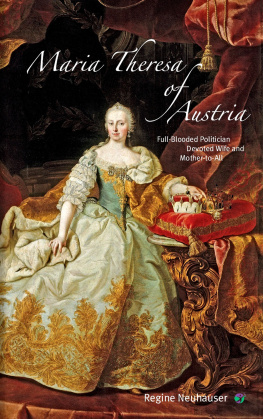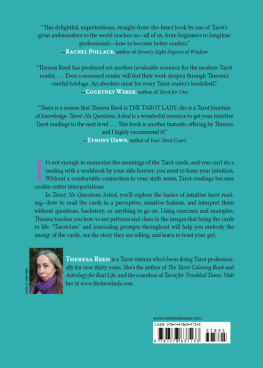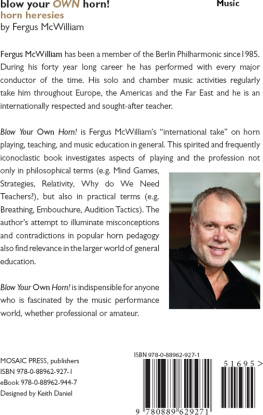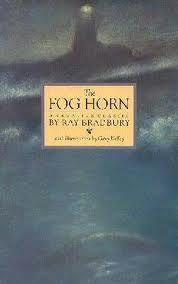Portrait of Maria Theresa
Life Stories for Young People
MARIA THERESA
Translated from the German of
W. D. Von Horn
BY
GEORGE P. UPTON
Translator of Memories, author of Upton Handbooks on Music, editor Autobiography of Theodore Thomas, etc., etc.
WITH FOUR ILLUSTRATIONS
A. C. McCLURG & CO.
CHICAGO
A. C. McCLURG & CO.
1905
Copyright
A. C. McClurg & Co.
1905
Published September 16, 1905
THE UNIVERSITY PRESS, CAMBRIDGE, U.S.A.
Translators Preface
Among the famous queens of the worldCatharine II of Russia, Elizabeth, Anne Boleyn, and Victoria of England, Mary Queen of Scots, Isabella of Spain, Louise of Prussia, Marie Antoinette, Marie and Catharine di Medici of France, and others, Maria Theresa of Austria holds a conspicuous place. In statesmanship and patriotism she ranks with Elizabeth and Catharine. As Catharine greatly improved the administration of her Empire, introduced new laws and extended its frontiers, and as Elizabeths reign was characterized by great commercial enterprises and extraordinary intellectual activity, so the reign of Maria Theresa, though she was engaged for years in two great wars,that of the War of the Austrian Succession and the Seven Years War with Frederick for the recovery of Silesia, which he had taken from her,proved to be of the highest benefit to Austria in the strengthening of law and the introduction of needed reforms and wise measures for the welfare of the Empire.
For years she was engaged in war for the preservation of Silesia with the most potent sovereign in EuropeFrederick the Great. Doubtless he had some antique claim upon Silesia, but when Maria Theresa succeeded to the throne under the terms of the Pragmatic Sanction, all the European powers, Prussia among them, whose rights might be affected, renounced their claims. She relied upon their good faith, but on the slightest of pretexts Frederick broke it and determined to rob her of Silesia, even at the cost of plunging all Europe into a long and devastating war. He set aside a new treaty to enforce an old claim. He plainly condemned himself by his own words in his Memoirs: Ambition, interest, the desire of making people talk about me carried the day and I decided for war. When peace was finally made, Maria Theresa retained her old inheritance, though she lost Silesia; but Frederick was more than willing to make peace, for all Germany had been a terrible sufferer by the war and Prussia was in dire straits.
The story of the life of the great queen is briefly told in these pages. It is the story of the life of a proud, ambitious queen; a wise, judicious ruler, who had the best interests of her subjects at heart, and for whom they were always ready to die; a woman of spotless personal character and true to all her domestic duties at a time when immorality and corruption were rife in high places. The story covers some of the same episodes of history which occur in the narrative of Frederick, in this series, but is none the less interesting, as the reader will find both sides presented.
G. P. U.
Chicago, 1905
Chapter I
The Young Queen
It would almost seem that the Emperor Charles VI, the father of Maria Theresa, had a presentiment of what was to come, when, directly after his marriage, he obtained from the various states united under his dominion an order of succession called The Pragmatic Sanction, which decreed that in case his house should become extinct in the male line, succession to the throne should pass to his female descendants. To make this law binding and legal was such an important matter to him that it may be said to have been the chief aim of his life.
In the year 1716, to the great joy of the Emperor, a son was born to him. Vienna and the whole country shared in the rejoicings of the royal parents; but unfortunately their happiness was of short duration, for, before the Autumn of that year had strewn the earth with withered leaves, the heir to the throne had drooped and died. The Emperors grief was intense, and was made harder to bear by reason of the many other cares and troubles which beset him on all sides at that time.
The second child was a daughter, Maria Theresa, who was born May 13, 1717, and upon whose head, according to the right of primogeniture established by the Pragmatic Sanction, the crowns of the united Austrian states were one day to rest. Who could have imagined that this child, while inheriting all the beauty of her mother, would be endowed at the same time with a masculinity of intellect, together with a strength and wisdom, a firmness yet kindliness of disposition, which but few men have manifested?
St. Ambroses Hymn of Praise was at once sung in the most solemn manner in St. Stephens Cathedral, in the presence of all the highest dignitaries of the Empire, and the baptism of the heiress to the throne took place on the evening of the day of her birth with great pomp and splendor. After the loss of their first-born, the imperial couple were overjoyed at the advent of this child, and, amid all the cares and responsibilities forced upon him by his numerous wars, the devoted father never lost sight of his fixed purpose or relaxed his efforts to obtain universal recognition of his law of succession among the European powers, as well as the various states of his own empire. He felt the importance of securing his beloved daughters undisputed title to the throne, while the Empress motherly heart rejoiced at each hardly won acknowledgment of the rights of her child, who already showed signs of such splendid promise.
But it was not alone in such well-grounded and well-directed efforts that the parents care showed itself: no pains were spared to develop to the fullest extent Maria Theresas abundant mental gifts and talents, so as to fit her for her future position as ruler of an empire; nor did the noble mother fail to sow the seed and nourish the growth in her daughters tender nature of those womanly virtues which were to bear such rich harvest.
With loving eyes the wise and careful Empress watched over the early training of the Princess mind,a mind which warranted the brightest hopes of all those to whose hands her education was intrusted. As may be readily understood, these instructors were selected from among the most distinguished ladies of the Court; the Countesses von Thurn and Valsassina, von Stubenberg and von Fuchs. They worked in perfect accord with the august mother upon whose breast God had placed the precious jewel, and to whose care He had intrusted the treasure. Later, as it became necessary for her to occupy herself with more serious and important subjects, learned and capable men were assigned the task of guiding the clear and active mind of the Princess through the departments of religion, history, and other branches of learning, the comprehension of which was deemed necessary. The study of languages, too, was begun at an early age and covered a wide range, as it was important that the future ruler of Austria should be familiar with the various tongues spoken within her dominions, and thus be able to dispense with interpreters who might, and indeed must inevitably, stand between her and her people to a certain extent. Above all, it was requisite that she should not only understand Latin but speak it fluently, since that was the language spoken in Hungary; and almost equally important was a knowledge of French, Italian, and Spanish. The most accomplished masters were chosen by the imperial parents, and equal care was bestowed on the choice of teachers for music, drawing, and painting.










